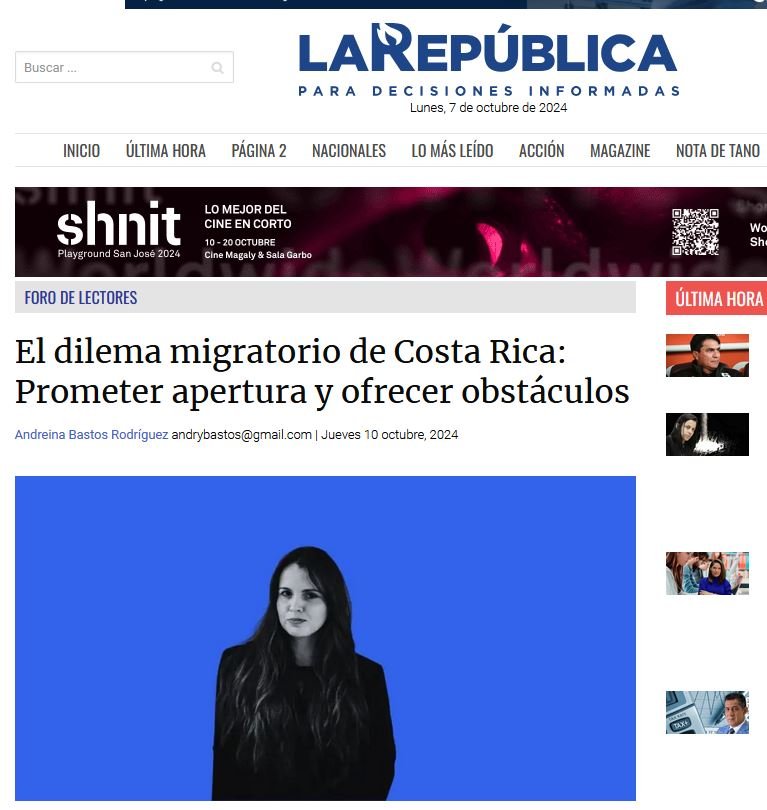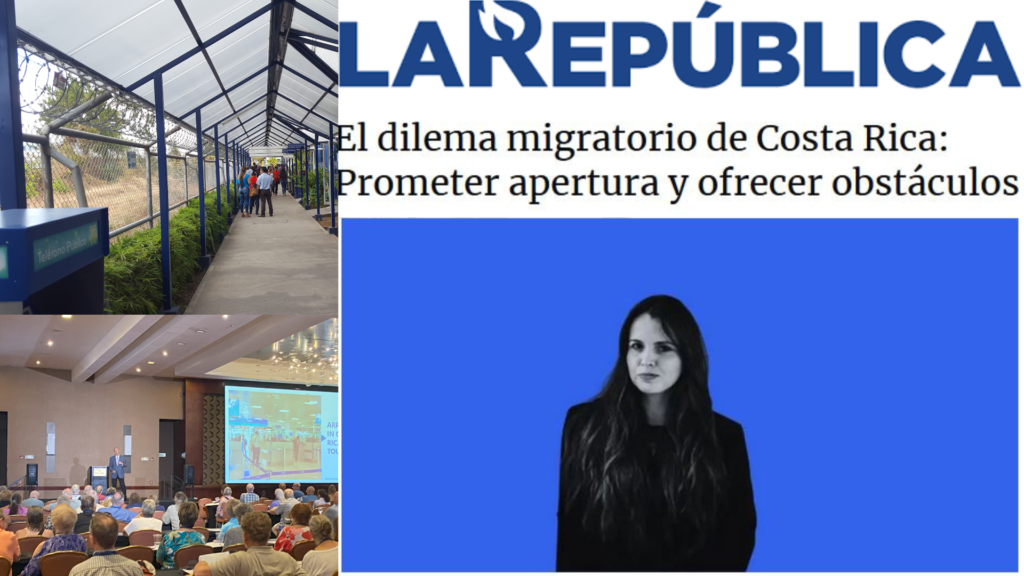Immigration Promises versus Reality
In the following article, titled “The Migration Dilemma of Costa Rica: Promising Openness and Offering Obstacles” Attorney Andreina Bastos discusses the promises made by the Costa Rica government with the law 9996 to stimulate applications for Pensionados, Rentistas and Investors and the reality that is occurring inside the Department of Immigration.

Costa Rica, with its reputation as a stable and high-quality destination, launched Law No. 9996 with great hope to attract investors, rentiers, and retirees. This law, designed to revitalize the post-pandemic economy, promised to open doors to those who could financially contribute to the country. However, in the execution of this policy, the State has failed, building bureaucratic barriers that not only discourage applicants but effectively expel them. Instead of facilitating the entry of these much-needed individuals, Costa Rica has become a place where bureaucracy stifles the economic potential it sought to capture.
One of the most evident failures is the refusal to allow residency applicants to correct errors in their documentation. These are not serious mistakes or unfixable faults; they are minor details that, in any other system, would be resolved through a simple notification, providing the opportunity to correct them. Yet, the Costa Rican State has chosen the path of rigidity: there is no room for rectification, no space for human error. This stance is not only unnecessarily harsh but contradicts the spirit of Law No. 9996, whose aim was to attract economically capable individuals, not drive them away due to trivial technicalities.
Such actions are not only harmful to individual applicants but also detrimental to the country. How can a nation in urgent need of foreign investment afford to reject people willing to contribute? The immigration process has turned into a bureaucratic trap that expels applicants, without considering the economic impact of their departure. Instead of seeing these people as allies, the system treats them as obstacles to be eliminated. Consequently, foreigners who could have made a positive impact on Costa Rica’s economy are forced to seek more favorable alternatives elsewhere.
What is most concerning is the absolute lack of recourse in response to these decisions. When an application is rejected for a minor error, applicants have no right to appeal. There is no possibility to challenge the decision, seek a review, or obtain justice. The resolution is final, with no opportunity for defense. Such practices go against the most basic principles of justice and fairness. Not only is the error penalized, but it is made irrevocable, turning the immigration system into a machine devoid of flexibility or sensitivity.
This situation raises serious questions about the priorities of the Costa Rican State. Is the attraction of foreign investment truly being prioritized, or is an administrative model being imposed that, under the guise of efficiency, has become more exclusive than inclusive? A system that does not allow for the correction of errors is a system that closes doors. And a State that refuses to reconsider its decisions is losing the trust and respect of those who could contribute to the country.
The cost of this rigid immigration policy goes far beyond rejected applicants. By perpetuating a system that discourages and rejects without the possibility of correction, Costa Rica is damaging its international reputation. Competing countries are simplifying their immigration processes, offering more accessible and attractive paths for foreign investors. Meanwhile, Costa Rica is building an image of an inaccessible, rigid, and bureaucratic country. This is not an image that attracts but one that drives people away.
The time for change is now. If Costa Rica truly wants to position itself as an attractive destination for foreigners, it must adjust its immigration system to be fairer and more flexible. It is not about eliminating controls or relaxing requirements; it is about offering a reasonable process, where mistakes can be corrected and where decisions are not absolute. The country cannot afford to lose economic opportunities simply because its bureaucracy is incapable of adapting to the real needs of applicants.
It is necessary to rethink the approach. A system that rejects without the possibility of correction is a system destined for failure. Costa Rica must act responsibly and recognize that attracting investors, rentistas, and retirees depends not only on well-intentioned laws but also on their application. Flexibility is not a sign of weakness but of administrative intelligence. In this case, intelligence requires the country to open its doors fairly and transparently, allowing those who wish to contribute to do so without being hindered by a system that offers no room for defense.
Costa Rica has much to offer, but it must first ensure that the message it sends to the world is one of openness and justice, not exclusion and rigidity. What is being rejected here is not just documents; it is opportunities for the country.
You can view the original article in Spanish at the website of La Republica “The Migration Dilemma of Costa Rica: Promising Openness and Offering Obstacles”

